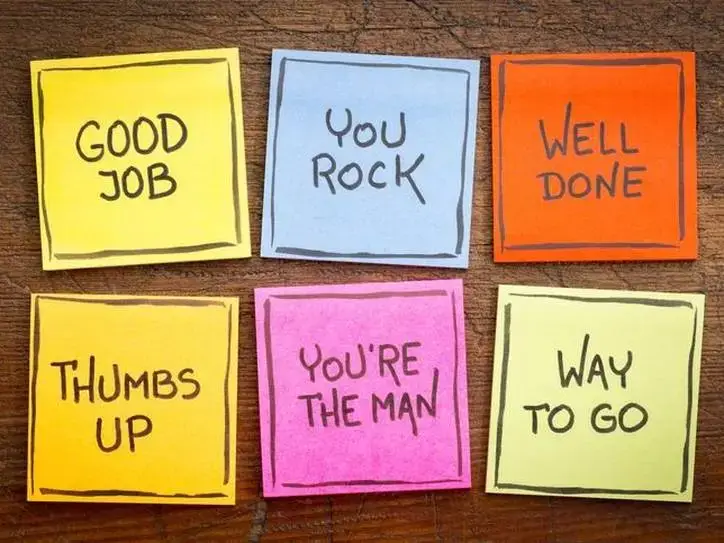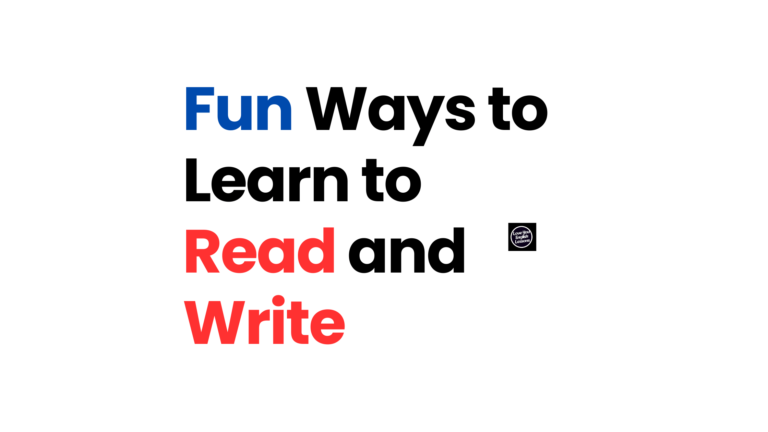Mastering the Art of Giving Compliments in English
Hello everyone, let’s talk about giving compliments.
Importance of giving compliments
In our daily lives, we often underestimate the impact of a simple compliment.
Yet, these small gestures hold immense power in brightening someone’s day and strengthening relationships.
Let’s dive into why giving compliments is so important.
Boosting Confidence:
Compliments have this magical ability to lift people up when they’re feeling down.
Whether it’s praising someone’s outfit, admiring their skills, or acknowledging their efforts, a genuine compliment can work wonders in boosting someone’s confidence.
It reminds them of their worth and encourages them to keep striving for greatness.
Fostering Positivity:
Have you ever noticed how a positive comment can change the entire atmosphere of a room?
Compliments have the remarkable ability to create a ripple effect of positivity.
When we express appreciation for others, it cultivates a warm and supportive environment where people feel valued and respected.
This positivity not only brightens someone’s day but also strengthens the bonds between individuals.
Strengthening Relationships:
Communication is key in any relationship, whether it’s with friends, family, or colleagues.
Compliments serve as a form of communication that expresses admiration, gratitude, and affection.
When we make a habit of giving genuine compliments, it strengthens our connections with others.
It deepens our understanding of their strengths and qualities, fostering a sense of closeness and trust.
Spreading Happiness:
Imagine the joy that spreads across someone’s face when they receive a heartfelt compliment.
It’s like a ray of sunshine breaking through the clouds, illuminating their day with warmth and happiness.
By giving compliments, we have the power to spread happiness and positivity to those around us.
It creates a ripple effect, inspiring others to pay kindness forward and make the world a brighter place.
Purpose of the blog post
The purpose of this lesson is to find significance of giving compliments and to highlight the lots of benefits they bring to both the giver and the receiver.
By exploring the transformative effects of genuine appreciation, we aim to inspire readers to incorporate compliments into their daily interactions and to cultivate a culture of kindness and positivity in their lives.
Through practical tips and heartfelt insights, we hope to illuminate the beauty of expressing gratitude and admiration, one compliment at a time.
Join me on this journey as I uncover the power of appreciation and celebrate the joy of spreading kindness.
Understanding the Power of Compliments
Impact on relationships
In the big world of people connecting with each other, compliments are like the bright threads that make strong friendships, love, and camaraderie.
They have a really big effect on relationships, going beyond just words to create real warmth and understanding between people.
Improving Relationships:
Compliments are like super glue that helps bring people closer together.
When we say nice things about someone’s qualities or actions, it shows that we recognize and appreciate them.
This makes our bond stronger and helps us trust and respect each other more.
Creating Trust:
Trust is super important in any relationship.
Compliments are like building blocks for trust because they show that we believe in and admire the good things about someone.
When we compliment someone, it makes them trust us more and makes our connection even stronger.
Making Communication Better:
Good communication is the key to having healthy relationships.
Compliments are like magic tools that make communication better because they encourage positive and open conversations.
They give us a chance to say nice things to each other and show gratitude and admiration.
Boosting confidence
Confidence is similar to a fragile flower that grows beautifully when it receives lots of support and kind words.
Compliments are like the warm sunlight that helps this flower grow, making people feel proud and confident about their special qualities and skills.
Boosting Confidence:
Compliments make us feel good about ourselves by recognizing our worth and abilities.
They help us see our value and boost our self-esteem, making us more confident in who we are and what we can do.
Motivating Progress:
Compliments push us to grow and reach for our dreams by acknowledging our hard work and achievements.
They inspire us to believe in ourselves and strive for success, giving us the motivation to face challenges and aim for greatness.
Silencing Doubts:
Compliments are like a shield against self-doubt and insecurity, providing comfort and validation when we need it most.
They highlight our strengths and talents, quieting the negative voice inside us and allowing us to embrace our full potential.
Creating positive environments
Compliments make everything sound good and happy, spreading joy and hope all around.
Compliments help people feel good about themselves, work well together, and become better versions of themselves.
Spreading Joy:
Compliments are like little drops of happiness that can make a big splash in our lives.
When we say something nice to someone, it’s like planting a seed of joy that grows and spreads to others, making the world a happier place.
Building Teamwork:
When we give compliments, we’re not just making someone’s day brighter – we’re also building a strong foundation for teamwork.
By creating a positive environment of trust and respect, we encourage collaboration and unity among individuals working towards common goals.
Boosting Happiness:
Compliments are like sunshine for our souls, nourishing our well-being and mental health.
They have the power to lift our spirits, reduce stress, and increase our overall happiness and sense of fulfillment.
In a positive environment filled with compliments, we can thrive and grow to our fullest potential.
Components of a Genuine Compliment
Sincerity
Being sincere is the most important part of giving a real compliment. It means being honest and genuine when you say something nice.
When you give a compliment, it’s really important to mean what you say.
People can usually tell if you’re not being sincere, and it can make them feel weird or unsure about why you’re saying nice things.
Why is sincerity important?
Creates Trust:
When you give sincere compliments, it helps to create trust between people.
When others know that your words are genuine, they are more likely to trust you and feel comfortable around you.
Makes Relationships Stronger:
Genuine compliments make relationships stronger by creating deeper connections.
They show that you truly value and appreciate the other person for who they are, which can strengthen the bond between you.
Boosts Confidence:
Sincere compliments have a big impact on someone’s self-esteem.
When someone receives genuine praise, it reminds them of their worth and boosts their confidence, making them feel really good about themselves.
Remember to really mean what you say: Before giving a compliment, take a moment to think about why you appreciate the person and what specifically you want to praise them for.
It’s important to be genuine and sincere in your words.
Don’t forget about positive body language: Make eye contact, smile, and use a warm tone of voice to show that you truly mean what you’re saying.
These actions can help convey your sincerity.
Stay away from exaggeration: Be honest in your praise and avoid making over-the-top statements that might seem insincere.
It’s better to be genuine and authentic in your compliments.
Specificity
Being specific when giving a compliment makes it more special.
Instead of just saying “You’re awesome,” try to mention exactly what you admire about the person.
This lets them know that you really pay attention to their individual traits or deeds.
Why is specificity important?
Shows Consideration:
Giving compliments that are specific shows that you have noticed the little things and have taken the time to truly understand and appreciate someone’s good qualities or actions.
Adds Importance to the Compliment:
When you mention exactly what you are praising, it makes your words more meaningful and shows the person that you truly value their actions or qualities.
Prevents Misunderstandings:
Specific compliments are less likely to be misunderstood compared to general ones. They leave no room for confusion and make it clear what exactly you are praising.
Tips for Being Specific:
When you give a compliment, try to be specific about what you liked instead of just saying “good job.”
For example, you could say, “I really liked how you organized your ideas in that presentation.” This shows that you paid attention to the details of their work.
Also, think about what makes that person unique and tailor your compliment to their strengths.
Context
Context means the setting or situation when you give a compliment.
Thinking about the context can make sure your compliment is right and appreciated.
Different situations might need different kinds of compliments, so it’s smart to think about the context before saying something nice.
Why is context important?
Making sure your compliments match the situation can make them more meaningful and special to the person you’re complimenting.
It shows that you really understand what’s going on and appreciate what they’re doing or who they are in that moment.
Considering the situation before giving a compliment can help you avoid saying something that might make things awkward.
What works in one place might not work in another, so it’s important to think about where you are and who you’re talking to.
When you tailor your compliments to fit the moment, they can have a bigger impact on the person you’re complimenting.
Recognizing their hard work or success in a specific situation can really make them feel good about themselves.
Tips for Considering Context:
Remember to think about the situation before giving a compliment.
Think about where you are, how you know the person, and what is considered normal in their culture.
Make sure your compliment matches the situation. If it’s a fancy event, make it more formal. If it’s a relaxed hangout, keep it casual.
And always think about what the person likes and what they would appreciate when deciding how to give the compliment.
Delivery
Delivery refers to how you convey your compliment, including your tone of voice, body language, and timing.
The way you deliver a compliment can greatly affect how it’s received, so it’s important to be mindful of these factors when offering praise.
Why is delivery important?
Showing Sincerity:
When you give a compliment, it’s important to show that you really mean it.
Speaking kindly, looking into the person’s eyes, and using positive gestures can all help show that you’re being genuine.
Making an Impact:
Giving a compliment in a thoughtful way can make a big impact on the person receiving it.
By taking the time to express your appreciation sincerely, you can show that you truly care about them.
Avoiding Confusion:
By delivering your compliment effectively, you can prevent any misunderstandings.
Using clear words and the right body language can make sure that your message is understood correctly.
Tips for Effective Delivery:
Speak with a kind and genuine voice: Talk in a friendly and sincere way to show how much you appreciate someone.
Look into their eyes: By making eye contact, you show that you are fully focused and interested in the person you are talking to.
Show positive body language: Use a smile and nod to express warmth and sincerity.
Pick the right moment: It’s important to choose the perfect time to give a compliment. Make sure the person is open and not busy with other things.
Be real: Most importantly, be yourself when giving a compliment. Let your true feelings come through in your words and actions.
When you give compliments, make sure to be sincere, specific, consider the context, and deliver it well.
This way, your praise will be more meaningful, appreciated, and will make the person feel good.
Remember to think about these things next time you want to thank someone and create a compliment that really makes them happy.
Types of Compliments
Compliments come in various forms, each tailored to celebrate different aspects of an individual’s life and personality.
Let’s explore these types of compliments in detail:
Appearance
Giving someone a nice compliment about how they look is a great way to show you admire them and boost their confidence.
Remember to be kind and thoughtful when you’re saying something nice about their appearance, and try to focus on things they can choose, like their style or smile, instead of things they can’t change.
Physical Features:
Giving someone a nice compliment about their physical features, like their smile, eyes, or hairstyle, can really make them feel good about themselves.
It’s like telling them that they look really nice, and it can make their day brighter.
Style Choices:
Another way to give a compliment about how someone looks is by noticing their fashion sense or personal style.
Whether it’s their clothes, accessories, or how they present themselves, telling them that you like their choices shows that you appreciate their efforts and that you pay attention to how they look.
Grooming and Hygiene:
Compliments about how someone takes care of themselves can also make them feel special.
When you praise someone for being clean, neat, or having good grooming habits, it shows that you care about their well-being and that you notice the effort they put into looking nice.
Make sure to be sincere and kind when giving a compliment about how someone looks. Talk about the good things that make them happy, but always be respectful and don’t say anything that might make them feel weird.
Skills and Talents
It’s really awesome to recognize someone’s skills and talents because it shows that you appreciate all the effort they put into their abilities.
Whether it’s something they love doing, their job, or even a talent they keep hidden, everyone has something special to bring to the table.
Here are some ways you can give a nice compliment about someone’s skills and talents:
Specific Abilities:
Take a moment to think about the things that make this person special.
Maybe they have a knack for drawing amazing pictures, or they can solve math problems like a genius.
Whatever it is, let them know how much you admire their unique skills and talents.
It’s important to show them that you appreciate and value what makes them special.
Effort and Dedication:
Think about all the hard work and time this person has put into becoming great at something.
Maybe they spend hours practicing their dance moves or studying for a test.
Let them know that you recognize and admire their dedication.
By praising their efforts, you can motivate them to keep working hard and pursuing their passions.
Encouragement and Support:
Everyone needs a little encouragement sometimes.
Whether it’s offering helpful advice or simply cheering them on, let this person know that you believe in them.
Show genuine interest in their growth and development by providing resources or constructive feedback.
By being supportive, you can inspire them to continue developing their skills and talents.
When you give someone a nice compliment about their skills and talents, it makes them feel really good about themselves. It also motivates them to keep working hard and following their dreams.
Achievements
It’s really nice to celebrate when someone does something awesome!
Whether they reach a goal, do something cool at work, or have a big moment in their life, it’s important to cheer them on.
Giving them a pat on the back can make them feel super happy and motivated. Here are some ways to tell them they did a great job:
Specific Accomplishments:
Talk about the awesome things they’ve done and how hard they’ve worked to achieve them.
Whether it’s winning an award, finishing a big project, or reaching a goal, let them know you see and appreciate all their efforts.
Impact and Significance:
Recognize how their achievements have made a positive difference, whether it’s helping others, supporting a cause, or overcoming tough times.
By praising their contributions and strength, you can inspire others to aim for greatness too.
Celebration and Recognition:
Show how excited and proud you are of their success by celebrating with them.
Whether it’s throwing a party, sending a congratulatory message, or simply giving them a big high-five, sharing in their happiness and showing your admiration creates a supportive and uplifting environment.
When you give someone a compliment about what they’ve accomplished, it shows that you recognize how much effort and commitment they put into it. It also encourages them to keep working towards their dreams and ambitions.
Personality Traits
It’s really nice to say nice things about someone’s personality. It shows that you appreciate their special qualities and strengths.
Whether it’s how kind they are, how caring they are, or how funny they are, pointing out the good parts of their personality can make them feel really good about themselves.
Here are some ways you can compliment someone’s personality traits:
Character Strengths:
Take a moment to think about the specific personality traits that you really admire in someone.
Maybe it’s their honesty, integrity, or resilience.
By expressing your appreciation for these virtues and qualities, you show that you truly value their integrity and admire their moral values.
Positive Attitude:
Have you ever noticed someone who always seems to have a positive attitude and outlook on life?
It’s pretty amazing, right? You can acknowledge this person’s optimism, resilience, or sense of humor.
Maybe they find joy in the little things, stay hopeful during tough times, or make everyone laugh with their jokes.
Praising their positivity and resilience will help them stay upbeat and optimistic.
Empathy and Compassion:
Have you ever met someone who is really kind and caring towards others?
It’s a wonderful quality to have. You can recognize this person’s empathy and compassion by highlighting their kindness, generosity, or empathy.
Maybe they always lend a listening ear, offer support to those in need, or show understanding towards others.
Praising their compassion and empathy helps create a culture of kindness and empathy.
When you say nice things about someone’s personality, it makes them feel good about themselves and shows that you appreciate what makes them special.
Guidelines for Giving Effective Compliments
Be Authentic
Being genuine is the key to a compliment that really means something.
When you give a compliment, it’s important to truly believe in what you’re saying.
People can usually tell when a compliment isn’t sincere, and it might actually make them feel uncomfortable or unsure.
To be genuine, focus on noticing qualities or actions that genuinely impress or inspire you.
Don’t go overboard or say things just to be nice, instead, speak from your heart.
Your honesty will show and make the compliment even more meaningful.
Be Specific
Giving specific compliments makes them more meaningful.
Instead of just saying something general like “You’re awesome,” try to be more detailed and point out exactly what you like about the person or what they did.
For example, instead of just saying “You’re nice,” you could say “I appreciate how you always listen to others and offer help when they need it.”
Being specific shows that you really care and pay attention to the person you’re complimenting.
Be Timely
It’s important to give compliments at the right time.
Even though it’s always good to show appreciation, giving compliments right away can make a bigger difference.
If you see something nice or impressive, don’t wait to say something about it.
This shows that you are paying attention and being genuine.
Just remember to think about when the best time is to give a compliment.
For instance, some people might like to be praised in front of others, while others prefer it to be more private.
Make sure to choose the right time based on the person and the situation.
Be Mindful of Cultural Differences
Different cultures have their own norms and values, so what might be seen as a nice thing to say in one culture could be seen differently in another.
It’s important to think about cultural differences when giving compliments, especially in places with lots of different cultures.
Make sure to learn about the customs of the person you’re complimenting so that your words are kind and polite.
Try not to say things that could accidentally upset someone or go against their culture.
Being aware of different cultures shows that you respect and value diversity.
Avoid Backhanded Compliments
Backhanded compliments, also called negging, are compliments that seem like insults or criticisms.
They usually involve saying something nice and then adding a sneaky or not-so-nice comment.
For instance, if someone says, “You’re pretty even though you don’t wear makeup,” it’s not really a nice thing to say; it’s actually an insult pretending to be a compliment.
These kinds of compliments can make people feel bad and harm relationships.
Instead, it’s better to give genuine and positive compliments that make others feel good and motivated, without any secret intentions.
Examples of Effective Compliments
Sample Compliments for Different Situations
Workplace:
“I really appreciate how you always go above and beyond to meet deadlines. Your dedication makes such a difference to our team’s success.”
“Your presentation skills are exceptional. You have a knack for explaining complex ideas in a clear and engaging manner.”
Friendship:
“You’re such a good listener. I always feel heard and understood when I talk to you.”
“Your sense of humor is contagious. You have a way of bringing laughter into any situation, and I’m grateful for that.”
Family:
“I admire your resilience. Despite facing challenges, you always manage to stay strong and optimistic.”
“Thank you for your unconditional support. Your encouragement means the world to me.”
Breakdown of Why Each Compliment is Effective
Workplace:
This compliment is effective because it acknowledges a specific behavior (going above and beyond to meet deadlines) and its positive impact on the team’s success. It highlights dedication and hard work, which are valued traits in a professional setting.
Friendship:
This compliment is effective because it recognizes a specific quality (being a good listener) that contributes to a healthy friendship. It shows appreciation for the friend’s empathy and support, fostering trust and closeness in the relationship.
Family:
This compliment is effective because it acknowledges a specific trait (resilience) and its significance in overcoming challenges. It expresses gratitude for the family member’s strength and encouragement, strengthening the bond between them.
In each example, the compliments are authentic, specific, timely, culturally sensitive, and free from any hint of negativity.
They demonstrate genuine appreciation and recognition of the individual’s qualities or actions, making them powerful and effective expressions of admiration and gratitude.
Overcoming Common Challenges
Fear of Sounding Insincere
Many people get nervous about giving compliments because they worry that they might seem fake or insincere.
This worry usually comes from not feeling confident enough to express genuine admiration or appreciation.
But don’t worry, there are a few ways to overcome this:
Be Real:
The most important thing when giving compliments is to be genuine.
Focus on finding something truly praiseworthy about the person or what they’ve done.
Being authentic will show that you mean what you say and will help others believe in your words.
Be Specific:
Instead of giving general compliments, try to be specific about what you admire or appreciate.
This shows that you’ve really noticed and valued something special about the person. It makes your compliment more meaningful.
Use Positive Words:
Choose words that truly reflect your feelings and show positivity.
Avoid exaggerating or using overly dramatic language, as it can make your compliment seem less sincere.
Listen Carefully:
Pay close attention to the person you’re complimenting and listen to what they say or do.
This will help you give compliments that are relevant and meaningful, making them even more sincere.
Fear of Being Misunderstood
Giving compliments can sometimes be challenging because we worry about being misunderstood.
We don’t want our kind words to be taken the wrong way or cause any discomfort. Here’s how to handle this fear:
Be Clear and Simple:
When giving compliments, make sure your words are clear and easy to understand.
This way, there won’t be any confusion or room for misinterpretation.
Just say what you admire or appreciate without any fancy language.
Think about the Situation:
It’s important to consider the person’s personality, culture, and the situation when giving compliments.
This helps ensure that your compliment is appropriate and well-received.
What might be a great compliment in one situation might not work in another.
Stay Positive:
When giving compliments, always focus on the positive.
Avoid using sarcasm or words that could be seen as criticism.
By keeping things positive, you reduce the chances of being misunderstood.
Clear Things Up if Needed:
If you notice any confusion or misunderstanding after giving a compliment, don’t be afraid to explain yourself.
Let the person know that you genuinely meant what you said and that your words came from the heart.
It’s important for them to understand your sincerity.
Remember, giving compliments should be a joyful and positive experience. By following these tips, you can navigate any fear of being misunderstood and spread kindness with your words.
Fear of Rejection
Many people are scared of giving compliments because they’re afraid of being rejected.
They worry that the person won’t care or will brush off their kind words. But don’t let that fear stop you!
Here are some tips to help you get over it:
Focus on the Compliment, Not the Response:
Instead of stressing about how the person will react, just focus on the fact that you’re spreading positivity.
Remember, you’re doing something nice, no matter what happens next.
Start Small:
If you’re nervous about giving compliments, start with little ones. Practice on your friends, family, or coworkers in easy situations. This will help you feel more confident.
Expect Different Reactions:
People might respond to compliments in all sorts of ways. Some will be happy, while others might feel awkward. Just respect their feelings and don’t take it personally.
Don’t Be Afraid to Be Open:
Giving compliments means being vulnerable, but that’s okay! Embrace that vulnerability and know that your kind words are what really matter.
Practice Makes Perfect
Gratitude Diary:
Begin a diary where you write down at least one nice thing or expression of gratitude every day.
This will help you develop a habit of appreciating the good things in life and recognizing the people around you.
Compliment Challenge:
Challenge yourself to give a certain number of compliments each day or week.
Set a goal and actively look for opportunities to praise others for their hard work, accomplishments, or positive qualities.
Role-Playing Exercises:
Practice giving compliments in pretend situations with a friend or family member.
This lets you practice real-life situations and become more confident in expressing genuine appreciation.
Random Acts of Kindness:
Include compliments in your random acts of kindness.
Whether it’s leaving a sticky note with a nice message for a colleague or verbally praising a stranger for their kindness, find creative ways to spread positivity through compliments.
Seeking and Receiving Feedback
Ask for Feedback:
Reach out to your trusted friends or family members and ask them for their thoughts on how you give compliments.
Find out if your compliments come across as sincere, clear, and effective.
Be open to receiving constructive criticism and suggestions for improvement.
Analyze the Responses:
Take note of how people react when you give them compliments.
Look for any patterns or common themes in the feedback you receive.
Use this information to make adjustments and improve the way you give compliments.
Listen Carefully:
Pay close attention to the feedback you receive and make an effort to understand other people’s perspectives.
Use their insights to enhance your compliment-giving skills and deepen your connections with others.
Show Gratitude for Feedback:
Thank the people who take the time to give you feedback on your compliment-giving.
Let them know that you value their input and that you are dedicated to getting better at it.
Conclusion
Recap of Key Points
In this lesson, we learned about why it’s important to give compliments and ways to deal with problems that can come up when giving compliments.
We talked about how to avoid sounding fake, how to make sure people understand your compliments, and how to handle rejection.
We also talked about how practicing giving compliments can help improve your skills, and we shared some tips for getting feedback on your compliments.
Encouragement to Start Giving More Genuine Compliments
We think it’s important for people to use compliments in their everyday conversations.
When we show real appreciation and admiration for others, we make them feel good and improve our relationships.
This helps create a kind and positive environment for everyone.
Invitation for Feedback and Sharing Experiences
I would love to hear from you!
Share your stories about giving compliments and facing challenges in the comments below.
Whether you have a cool story to share, a lesson you’ve learned, or need some advice, we’re all ears.
Let’s keep spreading kindness and appreciation by sharing compliments with one another!
Check out these awesome essay books I recommend:
151 Essays for IAS/ PCS & other Competitive Exams
LNAT Essay Writing Revision Guide Book






